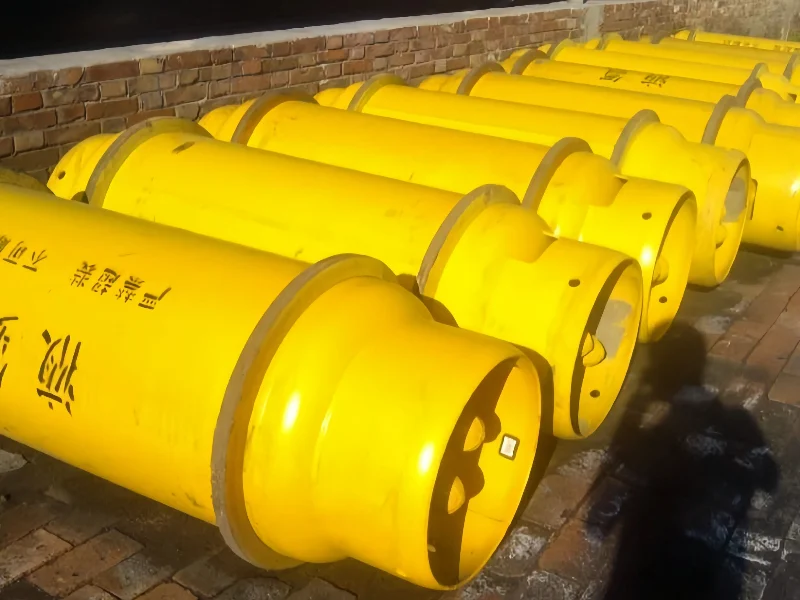
Introduction
Sodium cyanide (NaCN), a white crystalline powder, is a highly toxic yet extremely important chemical compound. Despite its lethal nature, it plays a crucial role in various industries due to its unique chemical properties. This article delves into the diverse application fields of sodium cyanide and highlights its significance.
Cyanide Mining: Extracting Precious Metals
Gold Cyanidation Process
Gold cyanidation, also known as the cyanide process, is the most widely used method for extracting gold from low - grade ores. Over 70% of the global cyanide consumption is dedicated to this purpose. In this process, Sodium Cyanide is utilized to dissolve gold metal. Thanks to the strong affinity between gold and cyanide, the gold in the ore oxidizes and dissolves when exposed to air, oxygen, and water. This method allows for the efficient extraction of gold from ores that would otherwise be uneconomical to process, significantly contributing to the global gold supply.
Silver and Other Precious Metals Extraction
Sodium cyanide is not limited to gold extraction. It is also used in the extraction of silver and other precious metals from their respective ores. By forming stable metal - cyanide complexes, it enables the separation of these valuable metals from the host rock. This is essential for the mining industry as it helps in maximizing the recovery of precious metals and enhancing the economic viability of mining operations.
Chemical Feedstock: Building Blocks for Chemical Compounds
Synthesis of Inorganic Cyanides
Sodium cyanide serves as a fundamental raw material for the production of various inorganic cyanides. Compounds such as cyanuric chloride, cyanogen chloride, and many nitriles are derived from it. For example, cyanuric chloride is an important intermediate in the production of pesticides, herbicides, and various types of polymers. The ability to produce these inorganic Cyanides from Sodium cyanide forms the basis for a wide range of downstream chemical products.
Organic Synthesis
In organic synthesis, cyanide, as a strong nucleophile, is used to prepare nitriles. Nitriles are widespread in many chemicals, including pharmaceuticals. An illustrative example is the synthesis of benzyl cyanide by the reaction of benzyl chloride and sodium cyanide. This reaction is a key step in the synthesis of many organic compounds, highlighting the importance of sodium cyanide in the field of organic chemistry. The synthesis of many drugs, flavors, and fragrances often relies on the use of nitriles prepared from sodium cyanide.
Electroplating: Improving Metal Surfaces
In the electroplating industry, sodium cyanide plays a multifaceted role. When used in electroplating solutions for metals such as copper, silver, cadmium, and zinc, it serves several functions. Firstly, it reduces the anodic polarization, ensuring the smooth and continuous dissolution of the anode. This helps in maintaining a stable concentration of metal ions in the plating solution. Secondly, it increases the cathodic polarization, which is crucial for obtaining a uniform and adherent metal coating on the cathode. The use of sodium cyanide in electroplating allows for the production of high - quality metal finishes with improved corrosion resistance, appearance, and durability. This is essential for a wide range of applications, from decorative plating in jewelry and consumer goods to functional plating in the automotive and aerospace industries.
Other Niche Applications
Metal Hardening
Sodium cyanide is used in the metal hardening industry. In certain heat - treatment processes, it can be used to introduce carbon and nitrogen into the surface of steel components. This process, known as cyaniding, improves the surface hardness and wear resistance of the metal while maintaining its toughness in the core. Components such as gears, shafts, and fasteners can be treated in this way to enhance their performance and lifespan in mechanical applications.
Fumigation
In some agricultural and storage applications, sodium cyanide has been used as a fumigant. Due to its ability to release hydrogen cyanide gas, which is toxic to pests, it can be used to control insects, rodents, and other pests in stored grains, warehouses, and greenhouses. However, its use in fumigation is highly regulated due to its extreme toxicity and potential environmental and health hazards.
Significance of Sodium Cyanide
Sodium cyanide's significance in these industries cannot be overstated. In the mining industry, it enables the extraction of precious metals that are essential for the global economy, jewelry industry, and technological advancements. In the chemical industry, it serves as a key building block for countless chemical compounds that are used in pharmaceuticals, plastics, fibers, and many other consumer and industrial products. In electroplating, it ensures the production of high - quality metal coatings that protect and enhance the performance of metal products. Even in its niche applications like metal hardening and fumigation, it provides unique solutions that are difficult to replace with other chemicals.
However, it is important to note that the handling, storage, and disposal of sodium cyanide must be carried out with extreme care due to its high toxicity. Stringent safety regulations and proper training are essential to minimize the risks associated with this chemical. Despite the risks, its importance in various industrial processes makes it a chemical of great value and continued study.
- Random Content
- Hot content
- Hot review content
- Toxicity Assessment of Sodium Cyanide and Relevant Hazard Prevention Measures
- QUALITY MANAGEMENT SYSTEMCERTIFICATE
- Flexible Customer and Supplier Relations Specialist (Location: India)
- Unlocking the Power of Mineral Processing Chemicals: Enhancing Efficiency and Sustainability
- Sodium Metal, ≥99.7%
- High-strength, High-precision Shock Tube Detonator
- Ammonium Persulfate Industrial Grade 98.5%
- 1Discounted Sodium Cyanide (CAS: 143-33-9) for Mining - High Quality & Competitive Pricing
- 2Sodium Cyanide 98% CAS 143-33-9 gold dressing agent Essential for Mining and Chemical Industries
- 3Sodium Cyanide 98%+ CAS 143-33-9
- 4Anhydrous Oxalic acid 99.6% Industrial Grade
- 5Oxalic acid for mining 99.6%
- 6Soda Ash Dense / Light 99.2% Sodium Carbonate Washing Soda
- 7Reagent Grade/Industrial Grade Hydrochloric Acid min.31%
- 1Sodium Cyanide 98% CAS 143-33-9 gold dressing agent Essential for Mining and Chemical Industries
- 2High Quality 99% Purity of Cyanuric chloride ISO 9001:2005 REACH Verified Producer
- 3 High-Quality Sodium Cyanide for Leaching
- 4Powdery emulsion explosive
- 5Industry Grade Electron grade 98% Sulfuric Acid H2SO4 Sulphuric Acid Battery Acid Industrial Sulfuric Acid
- 6Colloidal emulsion explosive
- 7sodium hydrosulfide 70% flakes used Mining Industry











Online message consultation
Add comment: